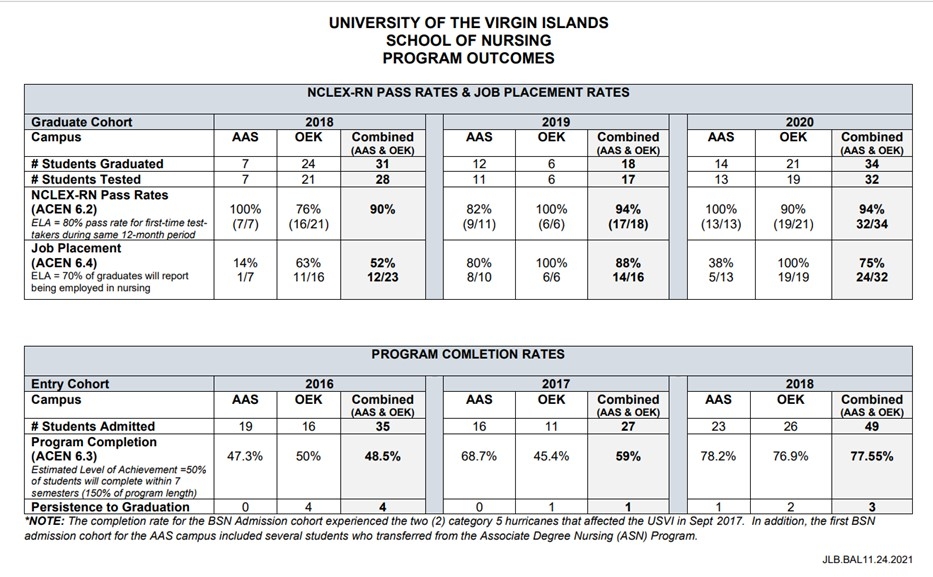

Academics
- Schools & Colleges
- Majors & Minors
- Center for Student Success
- College of Liberal Arts & Social Sciences
- College of Science & Mathematics
- School of Agriculture
- School of Business
- School of Education
- School of Nursing
- Honors Program
- Global & Graduate Education
- PhD in Creative Leadership for Innovation & Change
- Libraries
Bachelor of Science in Nursing
School of Nursing
Bachelor of Science in Nursing

Student Learning Outcomes:
- Evaluate nursing care provided to individuals, families, groups, populations, and communities across the lifespan from diverse backgrounds in a variety of settings to ensure that it is compassionate, age and culturally appropriate and based on a patient's preferences, values and needs.
- Collaborate with members of the interprofessional health care team to manage and coordinate the provision of safe, quality care for patients, families, groups, populations, and communities.
- Integrate scientific information and best current evidence with clinical expertise when making clinical judgments in the management of patient-centered care.
- Use quality improvement measures to evaluate the need for change in the delivery of patient-centered care and patient outcomes.
- Demonstrate effective use of strategies to mitigate errors and reduce the risk of harm to patients, self and others in healthcare, home, and community settings.
- Use empirical and evidence-based information and patient care technology to communicate relevant patient information and mitigate error in the management of safe, quality patient-centered care.
- Practice in a professional, ethical, and legal manner while managing patient-centered, standard-based nursing care.
- Integrate leadership and management theories and principles into practice when managing a caseload of patients and making clinical judgments about their care.
Program Objectives
BSN Program Outcomes are defined as the indicators by which Program effectiveness is measured and include:
- NCLEX pass rates (ACEN required)
- Job placement rates (ACEN required)
- Graduate/alumni/employer satisfaction rates (ACEN required)
- Graduation rates (ACEN required)
- Continuing ACEN accreditation
Assessment Methods Utilized by the School of Nursing
- NCLEX-RN first time pass rates
- Graduate, Alumni and Employer surveys
- Standardized exams (ATI), Faculty-prepared exams
- Clinical Performance Measures
Licensure Pass Rates
(Measured by graduation cohort)
2019 Bachelor of Science in Nursing Program = 94%
2018 Bachelor of Science in Nursing Program = 70%
2017 Bachelor of Science in Nursing Program = 92%
2016 Bachelor of Science in Nursing Program = 45%
2015 Bachelor of Science in Nursing Program = 38%
2014 Bachelor of Science in Nursing Program = 25%
2013 Bachelor of Science in Nursing Program = 75%
Program Completion Rate
Generic BSN students
2017 Entry cohort - 64%
2016 Entry cohort - 51.4%
2015 Entry cohort - 41.4%
2014 Entry cohort - 47.8%
2013 Entry cohort - 44%
2012 Entry cohort - 64%
(Most recent completed cohort)
*Cohort begins with the first NUR course in the curriculum. 5-7 semesters.
BSN Completion students
2017 Entry cohort: 100%
2017 Entry cohort - 100%
2016 Entry cohort - 100%
2015 None enrolled
2014 None enrolled
2013 Entry cohort – 100%
(Most recent completed cohort)
*3-4 semesters
Job Placement Rate
2019 Graduation cohort - 83%
2018 Graduate Cohort - 75%
2017 Graduate Cohort - 100%
2016 Graduate Cohort - 54%
2015 Graduate Cohort - 50%
2014 Graduate Cohort - 10%
BSN Program Outcomes Summary November 2021